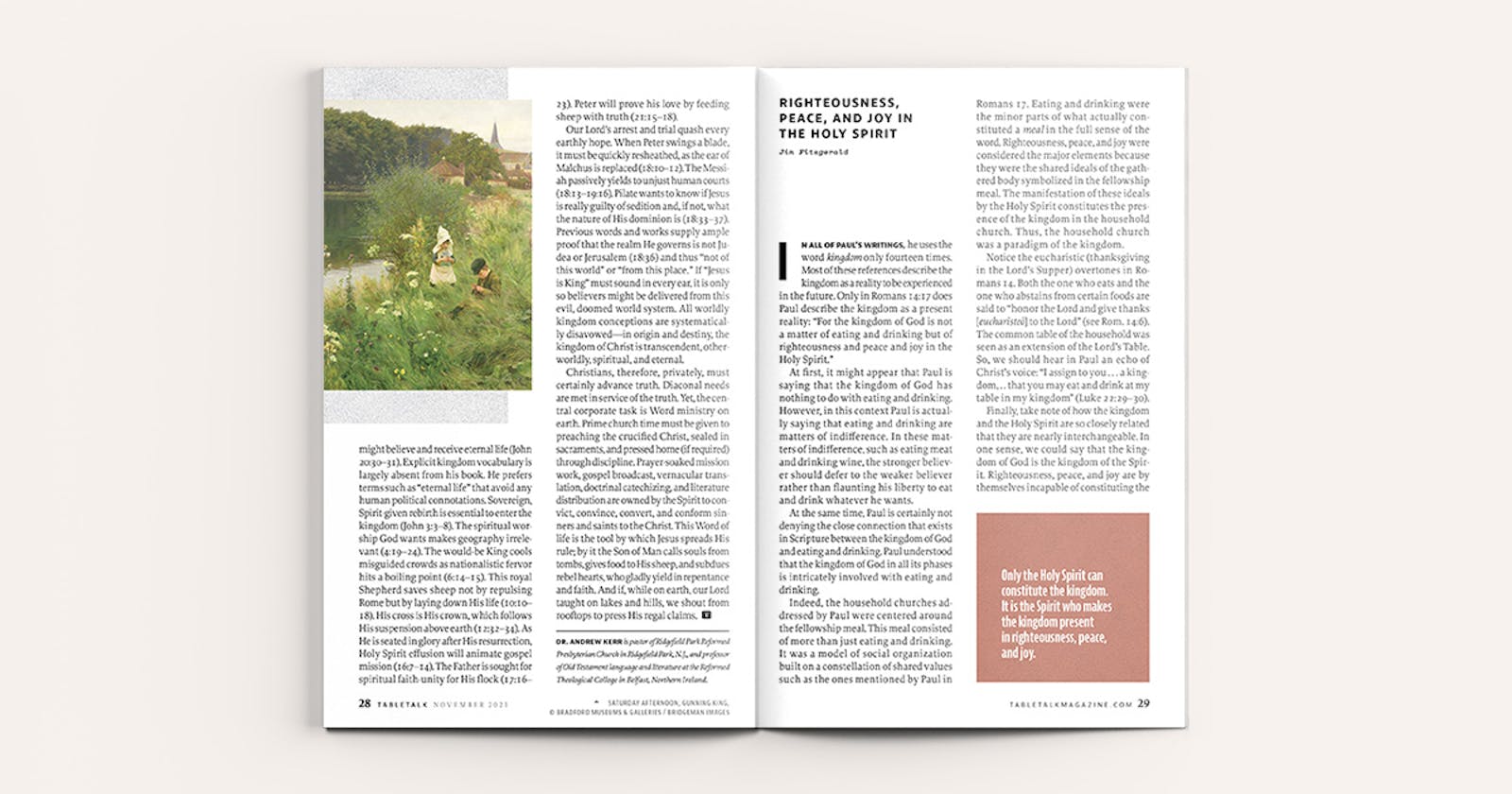
Request your free, three-month trial to Tabletalk magazine. You’ll receive the print issue monthly and gain immediate digital access to decades of archives. This trial is risk-free. No credit card required.
Try Tabletalk NowAlready receive Tabletalk magazine every month?
Verify your email address to gain unlimited access.
In all of Paul’s writings, he uses the word kingdom only fourteen times. Most of these references describe the kingdom as a reality to be experienced in the future. Only in Romans 14:17 does Paul describe the kingdom as a present reality: “For the kingdom of God is not a matter of eating and drinking but of righteousness and peace and joy in the Holy Spirit.”
At first, it might appear that Paul is saying that the kingdom of God has nothing to do with eating and drinking. However, in this context Paul is actually saying that eating and drinking are matters of indifference. In these matters of indifference, such as eating meat and drinking wine, the stronger believer should defer to the weaker believer rather than flaunting his liberty to eat and drink whatever he wants.
At the same time, Paul is certainly not denying the close connection that exists in Scripture between the kingdom of God and eating and drinking. Paul understood that the kingdom of God in all its phases is intricately involved with eating and drinking.

Indeed, the household churches addressed by Paul were centered around the fellowship meal. This meal consisted of more than just eating and drinking. It was a model of social organization built on a constellation of shared values such as the ones mentioned by Paul in Romans 17. Eating and drinking were the minor parts of what actually constituted a meal in the full sense of the word. Righteousness, peace, and joy were considered the major elements because they were the shared ideals of the gathered body symbolized in the fellowship meal. The manifestation of these ideals by the Holy Spirit constitutes the presence of the kingdom in the household church. Thus, the household church was a paradigm of the kingdom.
Notice the eucharistic (thanksgiving in the Lord’s Supper) overtones in Romans 14. Both the one who eats and the one who abstains from certain foods are said to “honor the Lord and give thanks [euchariste ] to the Lord” (see Rom. 14:6). The common table of the household was seen as an extension of the Lord’s Table. So, we should hear in Paul an echo of Christ’s voice: “I assign to you . . . a kingdom, . . that you may eat and drink at my table in my kingdom” (Luke 22:29–30).
Finally, take note of how the kingdom and the Holy Spirit are so closely related that they are nearly interchangeable. In one sense, we could say that the kingdom of God is the kingdom of the Spirit. Righteousness, peace, and joy are by themselves incapable of constituting the kingdom. Only the Holy Spirit can constitute the kingdom. It is the Spirit who makes the kingdom present in righteousness, peace, and joy.
From this verse, we can see that eating and drinking are never purely practically physical matters. Even in our own day, a common meal takes on the aura of a ritual. It is only by the Spirit that a meal becomes what it was always meant to be—a foretaste of the kingdom in righteousness, peace, and joy.
